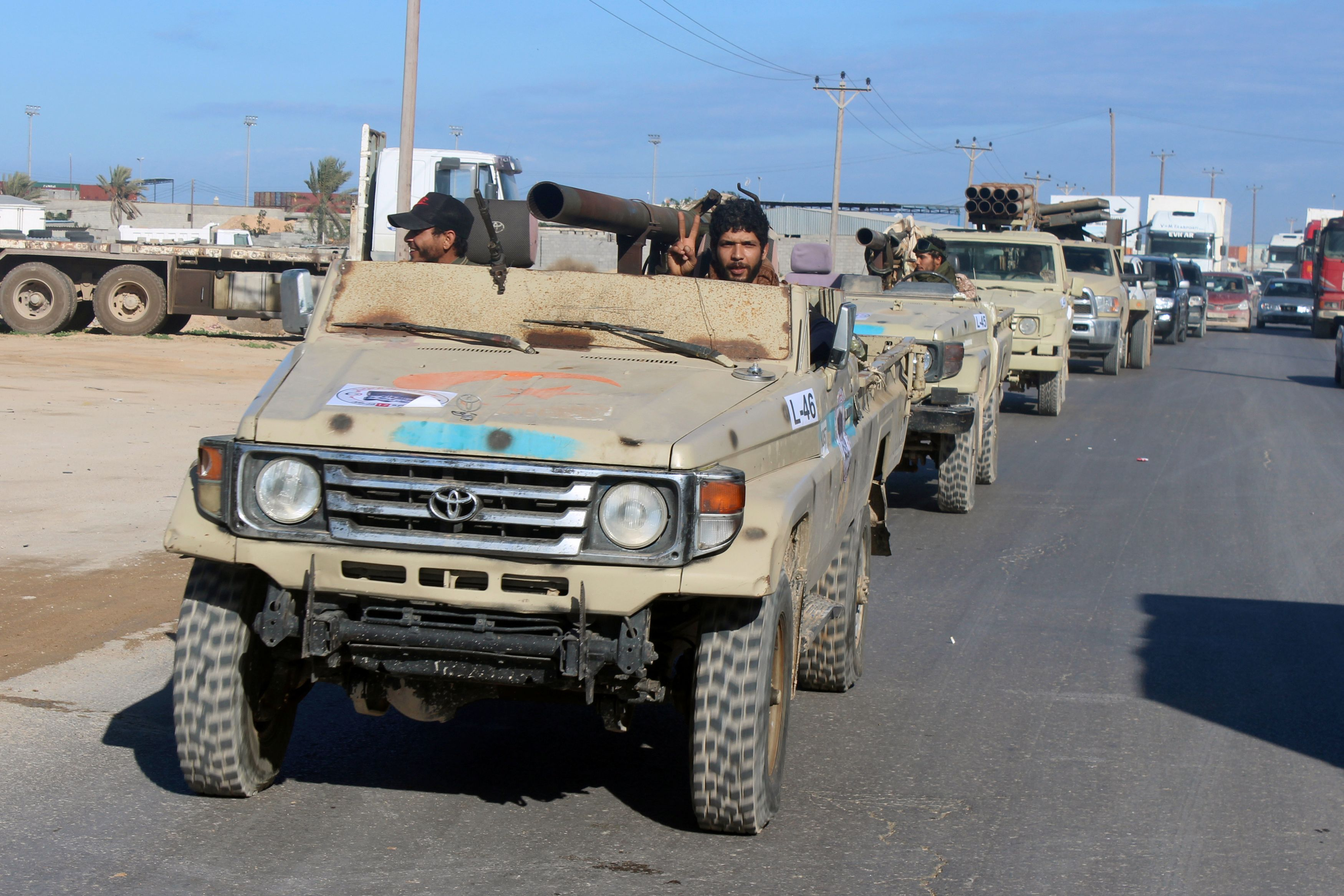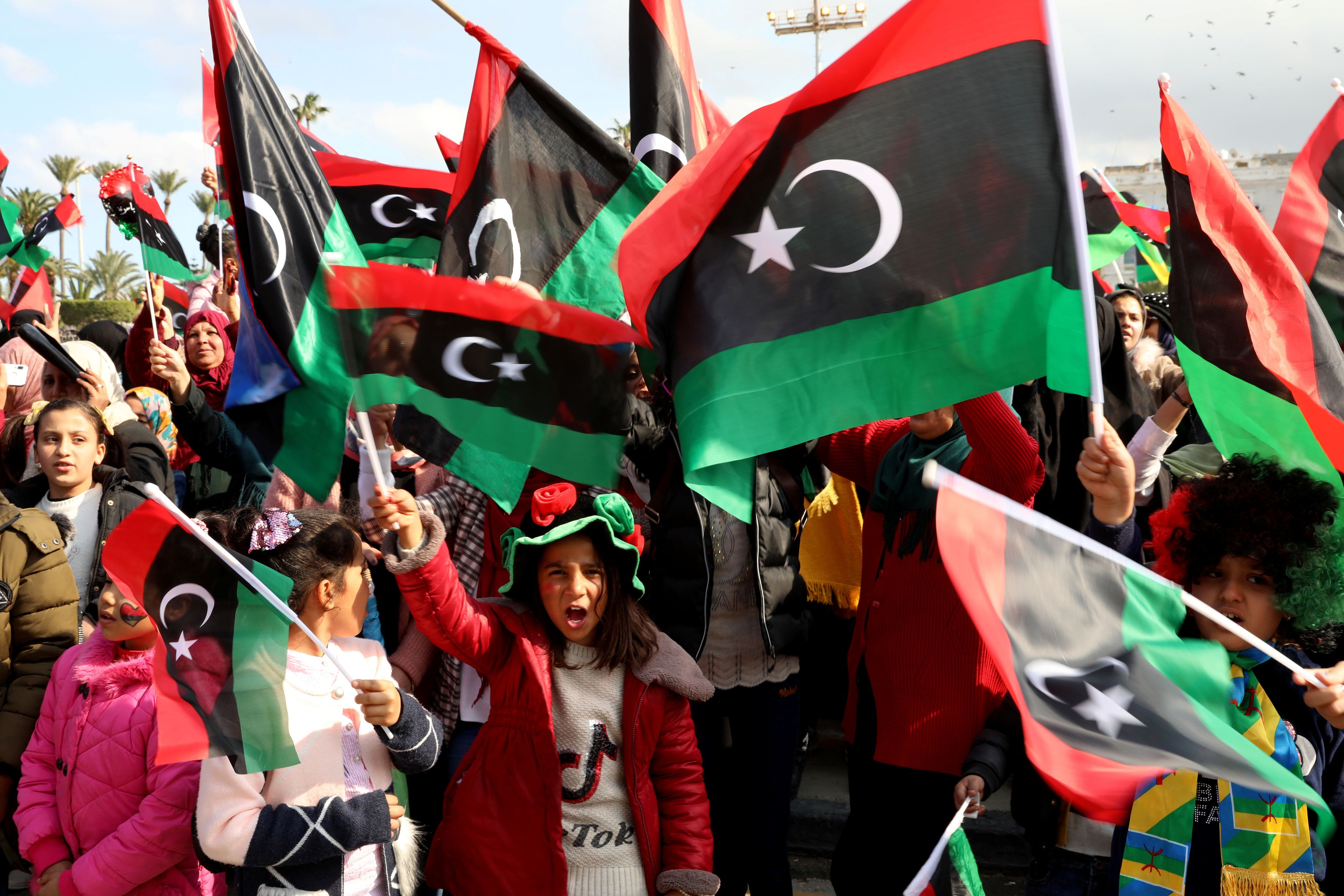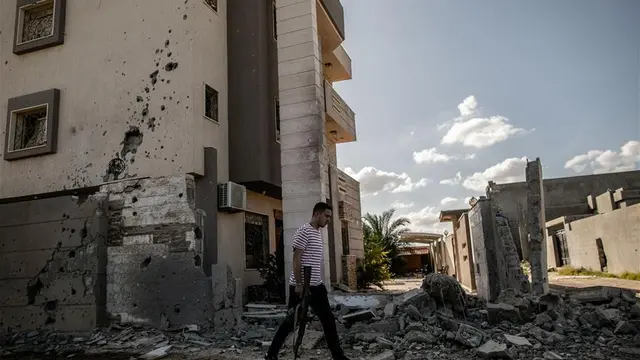The European Union will launch a new naval and air mission in the eastern Mediterranean to stop more weapons from reaching the warring factions in Libya, foreign ministers agreed on Monday, after Austria lifted its veto.
The decision marked a breakthrough after weeks of fruitless negotiations and warnings by EU foreign affairs chief Josep Borrell that the bloc risked becoming irrelevant if it could not act, potentially leaving Libya's fate to Turkey and Russia.
"We all agree to create a mission that blocks the flow of arms into Libya," Italian Foreign Minister Luigi di Maio told reporters following a meeting in Brussels, referring to a UN arms embargo first imposed in 2011 but now barely upheld.
In a compromise to assuage Austria's concerns that any naval mission could bring more migrants to Europe, EU ships will hail and inspect suspicious vessels in the eastern Mediterranean, where most arms smuggling takes place, away from migrant routes, diplomats said.

Military vehicles of the Libyan internationally recognized government forces head out to the frontline from Misrata, Libya, February 3, 2020. /Reuters Photo
Borrell said he hoped the EU operation could be patrolling by the end of March. At first, it would operate in international, not Libyan, waters. Borrell also said the EU could not be expected to patrol the Egypt-Libya land border, through which artillery is still being delivered.
"It would be very difficult for us to act between two sovereign countries," he told reporters.
Austrian Foreign Minister Alexander Schallenberg said that was acceptable but that Vienna would still be vigilant for any signs that the mission, which will take several weeks to set up, was attracting migrants into Europe.
U.S. President Donald Trump spoke over phone with his Turkish counterpart Recep Tayyip Erdogan on Saturday, saying that continued "foreign interference" will worsen the situation in the war-torn country.
On Monday, Libyans from a number of cities have gathered in the capital, Tripoli, to celebrate nine years since the beginning of an uprising that eventually toppled Muammar Gaddafi after 42 years in power.
Waving flags and playing music, the large crowds took to the streets to mark the 2011 uprising that began in the coastal city of Benghazi.

People wave Libyan flags as they gather during celebrations commemorating the 9th anniversary of the revolution at Martyrs' Square, Tripoli, Libya, February 17, 2020. /Reuters Photo
But nearly a decade later, the power vacuum that followed Gaddafi's killing continues to fuel violent conflict, with the deeply divided country no closer to lasting peace amid a fierce contest by two rival administrations in the west and east.
UN-backed Libyan Prime Minister Fayez Serraj on Saturday highlighted the cease-fire as a precondition for any negotiation.
Libya's east-based army has been leading a military campaign since April 2019 in and around Tripoli, attempting to take over the city and topple the UN-backed government. The fighting has killed and injured thousands of people, and forced more than 150,000 to flee their homes.
(Cover: A destroyed house in the abandoned suburb of Khallat Al-Ferjan, southern Tripoli, Libya, February 16, 2020. /Xinhua Photo)
 简体中文
简体中文





